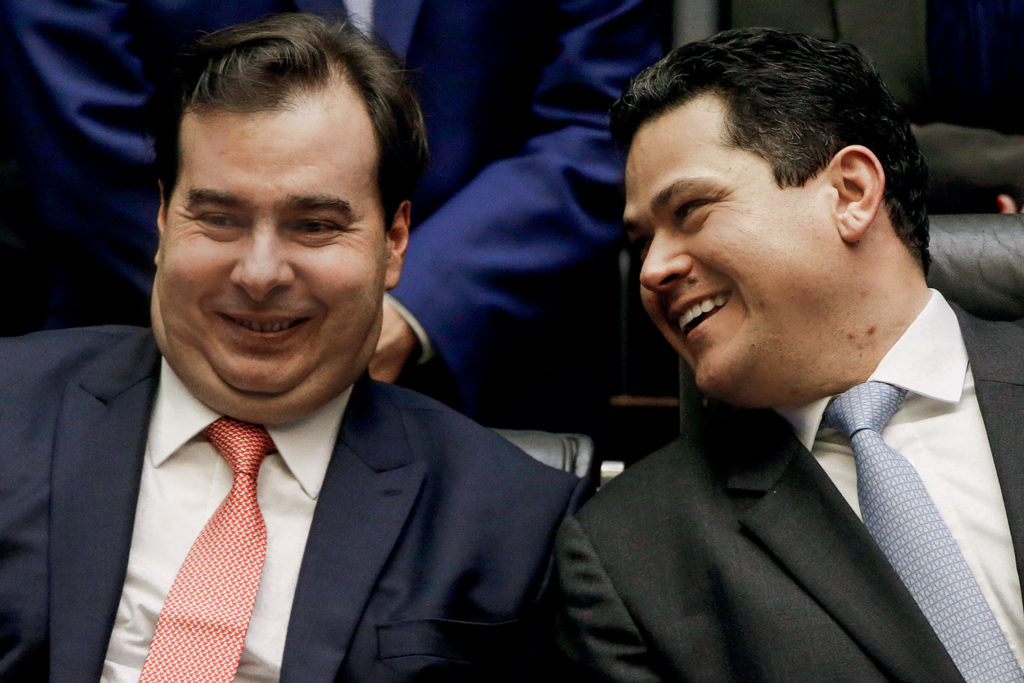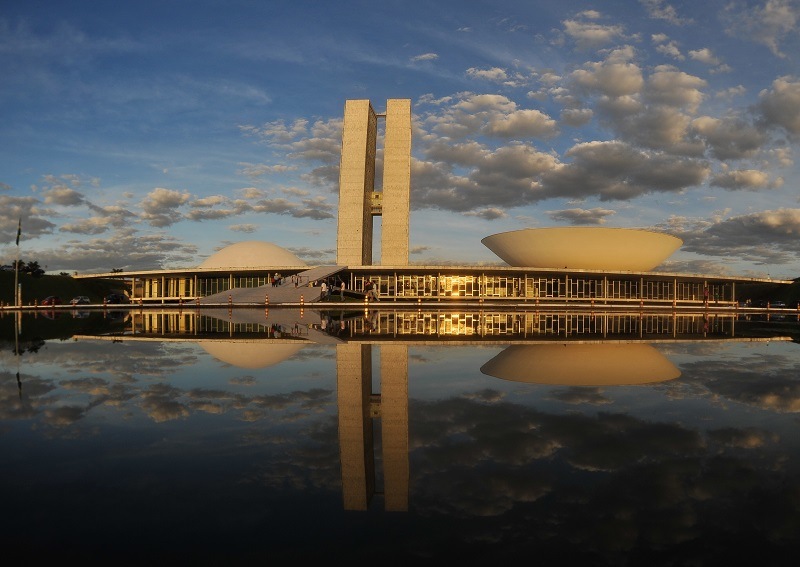RIO DE JANEIRO, BRAZIL – With the suspension of the operation of the National Congress’s specialized committees, the presidents of the Chamber of Deputies, Rodrigo Maia, and of the Senate, Davi Alcolumbre, have been concentrating unprecedented power since taking command of the two Houses.
For four months now, it has been up to them alone to decide on everything that will or will not be voted on. Leaders report discomfort with the situation and demand the establishment of collegiate bodies, where debates are more thorough and the agenda has no interference from Maia and Alcolumbre.
In all, there are 19,500 bills suspended in the 25 standing committees of the Chamber. Of these, 1,092 are ready to be voted on, that is, they have already been debated and the rapporteurs have delivered their opinions. In the Senate, there are another 2,814 bills – 628 awaiting the voting stage.

Also due to its composition – committees can have at most 66 deputies – the debates are more detailed and often involve public hearings with people from outside Congress called in to express their opinions on the most diverse topics. The voting done directly in plenary session of the two Houses skips this debate stage.
Among the agenda items awaiting the return of committees are the PEC (Proposed Constitutional Amendment), which provides for imprisonment after one appellate court has confirmed a conviction, and various reforms – such as the tax bill, whose proposal was submitted to Congress on July 21st. An online debate session with the Minister of Economy, Paulo Guedes, is scheduled for August 5th, but voting will only take place once the committees are in place.
The suspension of committees also compromised the prerogative of the Legislative to monitor the Executive. Of the 87 requests to summon government officials, only one was passed by the Senate this year – that of the ex-Minister of Education Abraham Weintraub. There are 66 requests in the House to interview officials still stuck in the leader’s drawer.
In the Senate, committee chairs serve a two-year term. In the House, it’s only one year, and for the first time, the House has failed to choose who will lead the committees. The election was due to take place in February, even before the suspension of the in-person sessions.
Limitation
The online system set up for remote voting during the pandemic has been used only in plenary sessions, both in the House and Senate, and has become recognized by other parliaments around the world. However, the heads of both Houses say that there are no technical conditions to extend its operation to the committees, although they fail to provide details on why the system is working for the plenary, which comprises 513 deputies and 81 senators, and would not work for the committees, where groups are much smaller.
Increased power in the hands of Maia and Alcolumbre also favors them in the succession proceedings at the helm of the houses of Congress. While the Chamber president is working to establish his chosen successor, his colleague in the Senate is still looking for a way to fight for reelection. To that end, he will need the support of his colleagues to pass a change in the law. Greater control over the agenda is a key bargaining tool in the search for votes.

For Deputy Paulo Ganime, the absence of committees creates a concentration of excessive power in the hands of the presidents of the Houses. “There is no room for the proposals that are finalized in committees (some bills do not require voting in plenary by the 513 deputies and 81 senators; only a deliberation in committees). The plenary agenda has always rested on the President of the House,” he said. “We need to move forward on several important issues, which are within special committees, such as imprisonment after an appeal, tax reform, the Brazilian electricity code, and the code of criminal procedure.”
“In addition to the bills ready to be considered, many rapporteurs have their opinions ready and, since the committees are not operating, they can not be filed in the system,” said Deputy Felipe Francischini, who until last year chaired the Constitution and Justice Committee.
The committees’ blackout produces a line of 28 approval proceedings in the Senate, among them ambassadors and heads of regulatory bodies. There are 22 ambassadorial nominations stuck in the Foreign Relations Committee, which is in charge of scrutinizing appointees. Regarding the regulatory bodies, several are holding interim directors pending a vote in the Senate. In the National Health Regulatory Agency (ANVISA), for one, three of the five directors are substitutes.
Questioned, Maia and Alcolumbre did not wish to comment on when the committees’ work will be resumed. Both the Chamber and Senate Presiding Board were asked about the committees’ paralysis and the option of using the remote system to restart deliberations, but they also failed to comment.
Budget
The blackout of Congress committees affects not only the processing of bills and proposals to amend the Constitution but can also impact the federal budget. Like the other committees, the Congressional Budget Committee has not even been created and there is no estimate of when this will be achieved or how it will operate.
The government has until the end of August to forward its proposal to Congress, which must put it to a vote by December. Otherwise, the country will enter 2021 with no estimate of how it will be able to distribute funds throughout the year.
With the paralysis, some deadlines may be disregarded. The submission of parliamentary amendments, for instance, should occur by October at the latest.
The Budget Guidelines Law (LDO), which sets the rules on how public money can be spent, has already exceeded the schedule. The bill was forwarded by the government in May and the deadline for its vote was the start of July. It should now be analyzed only when committee work is resumed.
Faced with this scenario, Chamber and Senate legislators and officials are discussing a way to enable remote sessions at least for the Budget Committee.
But not even those who are listed to head the debate can say for sure when this may occur. “Everything is still paralyzed, nothing is being discussed. With the return of the in-person sessions, things will be gradually re-established”, said Senator Irajá Abreu, appointed to report the LDO.
Source: O Estado de S. Paulo

